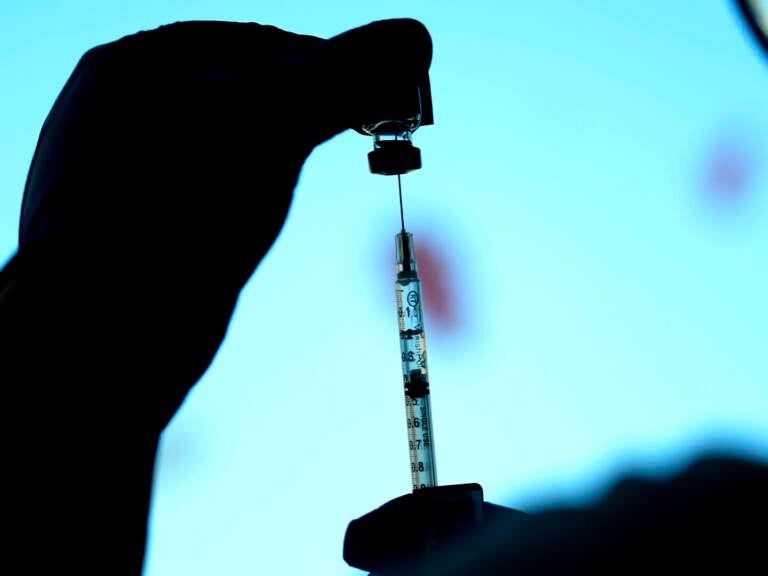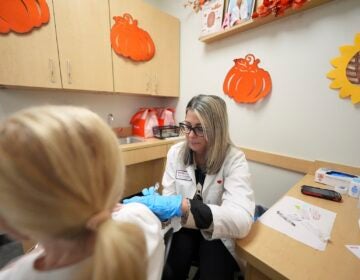If you don’t want to give COVID-19 for Christmas, experts recommend the bivalent booster
Just under 14% of Pennsylvanians, age five or older, have gotten the shot, according to data from the Centers for Disease Control and Prevention.

File photo: A dose of a Pfizer COVID-19 vaccine is prepared at Lurie Children's hospital, Nov. 5, 2021, in Chicago. Three new U.S. studies offer more evidence that the COVID-19 vaccines are standing up to the omicron variant, at least among people who have received booster shots. The Centers for Disease Control and Prevention released the studies, Friday. Jan. 21, 2022. (AP Photo/Nam Y. Huh, File)
Uptake of the new COVID-19 booster has been lackluster even though it has been available since late summer.
Just under 14% of Pennsylvanians, age five or older, have gotten the shot, according to data from the Centers for Disease Control and Prevention – that number is a smidge better than the national rate of 12%.
Allegheny County is doing slightly better. According to data collected by the Pennsylvania Department of Health, nearly 18% of county residents, age five and above, have been boosted. Only Montour and Montgomery counties have higher rates, but the state does not collect data on Philadelphia.
The most recent version of the vaccine is bivalent: It contains components of both the original COVID-19 virus, as well as the omicron variant. Medical professionals say while the booster does not prevent infection 100% of the time, it lowers a person’s risk of getting severely ill if infected — regardless of the strain.
Yet many patients doubt the benefits of getting yet another COVID-19 booster, according to Dr. Amy Crawford-Faucher of Allegheny Health Network.
“My elevator pitch is the bivalent booster is better protection against getting symptomatic or severe COVID infection compared to not getting the booster,” she said. “The downside of getting the booster is getting another shot.”
While most people have a certain level of immunity to COVID-19 due to previous infections and vaccinations, that immunity wanes over time – increasing a person’s chances of reinfection and severe illness.
If hospitalized, one’s treatment options have become more limited: Last month, the Food and Drug Administration pulled the use of monoclonal antibodies as the current COVID-19 subvariants are not susceptible to this therapeutic. This leaves antivirals as the only treatment. But Paxlovid, the most effective antiviral, is not available to transplant patients or people who take certain medications for heart disease and high cholesterol.
“[It’s] getting colder, getting around the holidays, the chance of the rates going up in the community and risk of getting COVID are higher,” said Dr. Barbara Nightingala, who oversees clinical services at the Allegheny County Health Department.
Getting vaccinated before the gauntlet of indoor gatherings hits full swing not only decreases a person’s chances of catching COVID-19, but it also lowers the risk spreading it to others, including elderly loved ones.
WHYY is your source for fact-based, in-depth journalism and information. As a nonprofit organization, we rely on financial support from readers like you. Please give today.




![CoronavirusPandemic_1024x512[1]](https://whyy.org/wp-content/uploads/2020/03/CoronavirusPandemic_1024x5121-300x150.jpg)


